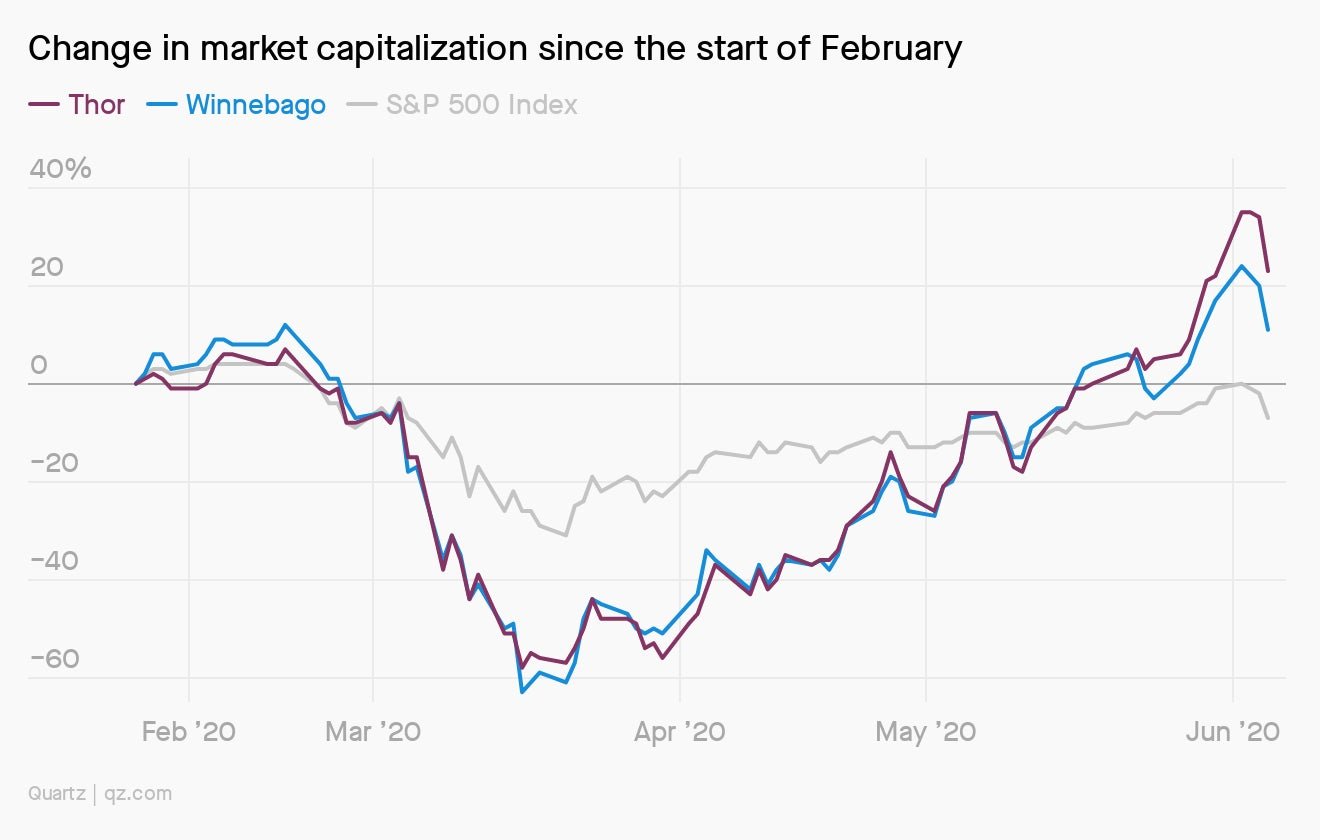Police shooting outrage, Europe reopens, pandemic pivot
Good morning, Quartz readers!

Good morning, Quartz readers!
Here’s what you need to know
A police shooting in Atlanta fueled indignation. The finding by medical examiners that Rayshard Brooks’s death Friday was a homicide added to fury over police violence toward African Americans. As protests against racism continue around the world, far-right groups pushed back in Europe over the weekend, clashing with police in London.
Chinese consumers opened their wallets. Spending on cars and homes gave the country’s economy a boost last month, adding to optimism that China’s factory-led recovery (paywall) is gaining momentum. But a spike in Covid-19 cases at a food market in Beijing revived worries of a second wave of infections, as neighborhoods near the market went into lockdown.
Europe starts to reopen borders. Many restrictions in the Schengen area will ease for fellow Europeans today in a bid to salvage the summer travel season, with a patchwork of different rules across countries. Non-essential shops also reopened in England today for the first time in nearly three months.
H&M sales plunge—but not quite as much as expected. The fashion retailer, which began a gradual reopening of stores in late April, said net-sales dropped 50% in the second quarter. About 18% of the Swedish company’s 5,058 stores are still temporarily shuttered.
New Zealand has fans in stadiums again. Following prime minister Jacinda Ardern’s announcement that the country has no known cases of Covid-19, 20,000 rugby fans packed into a Dunedin stadium for a Saturday match with no social distancing protocols.
Cut through the noise. We’ll be randomly selecting one reader who refers a friend to the Daily Brief to receive a pair of Bose noise-canceling headphones. Referring readers to the Quartz Daily Brief helps support our journalism directly.
What to watch for
Monday: UK and EU leaders meet to discuss a post-Brexit free-trade pact. Mexico City begins to lift restrictions on car traffic and public transport.
Tuesday: US Federal Reserve chairman Jerome Powell appears before the Senate banking committee. US retail sales for May are expected to rise on the back of restaurant and retail reopenings.
Wednesday: The English Premier League restarts.
Thursday: The Bank of England meets and is expected to expand its asset purchasing program. China’s online retail giant JD.com lists in Hong Kong after raising $3.9 billion.
Friday: Tokyo drops all coronavirus business restrictions, Japan’s baseball season begins, and Chinese basketball resumes following a months-long hiatus.
Charting the rising popularity of RVing

Recreational vehicles—trailers (towed behind cars), campers, and motor homes—aren’t a necessity, and so they become more popular when people have more money to spend on discretionary purchases. In March’s market slide, the values of Thor and Winnebago, the two biggest publicly traded RV companies, cratered faster than the S&P 500 index.
But their stock prices have outpaced it since, and soared in late May as signs of a promising summer become clearer. Many people who may have been confined to their homes are turning to RVs as a way to travel with limited risk of infection.
For Members: Science’s great pandemic pivot
Quartz spoke with four major global institutions to highlight how scientists are pivoting to focus on Covid-19. Here are some of the changes they have had to make:
The Max Planck Institute of Experimental Medicine in Germany shifted from “generating mouse mutants” to testing for coronavirus, helping the city of Göttingen to reopen.
Scientists at the African Center of Excellence for Genomics of Infectious Diseases in Nigeria went from working on a rapid diagnostic kit that would test for malaria, Lassa fever, and Ebola all at once to coronavirus testing and sequencing
Israel’s Migal Galilee Research Institute went from working on a vaccine for chicken coronavirus to applying their knowledge to creating a vaccine for Covid-19.
The Jenner Institute at Oxford University in the UK dropped their work on more than 15 diseases, including MERS, HIV, Ebola, Zika, malaria, lung cancer, and prostate cancer, to focus on producing a potential coronavirus vaccine.
Read more about the work of these institutions in our field guide on science’s great pandemic pivot.
✦ To gain access to all the stories, presentations, field guides, workshops, and more available exclusively to Quartz members, try a seven-day free trial. ✦
Surprising Discoveries
A startup is on the defensive about its orgasm-identifying algorithm. Cyprus-based Relida Limited said its code could “validate” female orgasms 86% of the time.
Russian prison guards walked on broken glass. It was part of a “self-awareness course” for guards in one of the country’s strictest penitentiaries.
Researchers found ancient survival gear for use in rainforests. Many of the tools discovered in the cave in Sri Lanka are made of monkey bone.
A former Nazi submarine base is now a digital art library. Les Bassins de Lumières opened last week after a nearly two-month delay.
A small town in Washington is printing its own currency. It’s issuing wooden dollars for exclusive use at local businesses in an attempt to cushion the pandemic’s economic blow.
Our best wishes for a productive day. Please send any news, comments, survival gear, and wooden dollars to [email protected]. Get the most out of Quartz by downloading our app on iOS or Android and becoming a member. Today’s Daily Brief was brought to you by Mary Hui, Isabella Steger, Jenni Avins, Jackie Bischof, Daniel Kopf, Alexandra Ossola, John Detrixhe, and David Yanofsky.